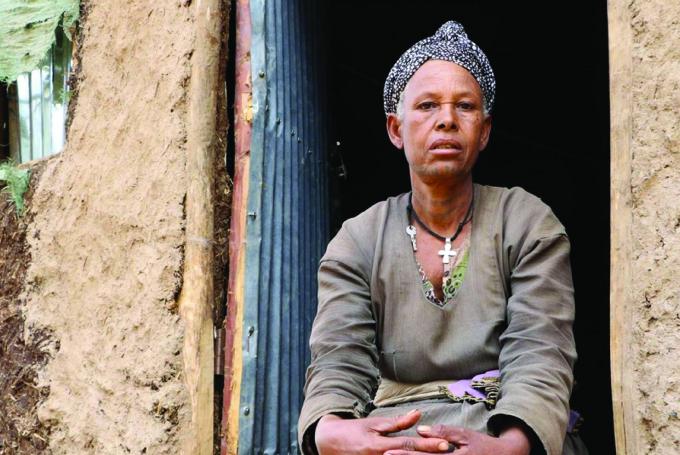FROM A TRADITIONAL BIRTH ATTENDANT TO A HEALTH PROMOTER: GUZGUZ’S STORY
FROM A TRADITIONAL BIRTH ATTENDANT TO A HEALTH PROMOTER: GUZGUZ’S STORY

Guzguz, 52, is a mother of three children. She lives in Agri - a rural village in the Amhara Region of Ethiopia.
Guzguz has been a Traditional Birth Attendant (TBA) in her local community for a period of over fifteen years. Though untrained, Guzguz has assisted quite a significant number of pregnant women to deliver at home. She can’t clearly recall how many women she had assisted but she estimates the number to be above 50 women.
“I don’t recall how many, but I guess I might have assisted more than 50 mothers in their labour at home,” says Guzguz.
Due to lack of training and other compounding factors, at times there were unintended consequences during the delivery – sometimes mothers and new-born babies died. She was aware of some of the predisposing factors that caused the deaths – such as excessive bleeding but she did not know how to prevent it. She felt helpless.
“I have many bad memories of mothers and babies dying no matter how hard I tried to help them survive,” she recounted. “From my experience, most maternal deaths are caused by excessive bleeding during childbirth. When I see a mother dying at birth, I feel sad and devastated,” she added.
Fortunately, in 2018, Guzguz was selected by Save the Children staff to join a regular community conversation programme in her village. The programme was initiated and supported by Save the Children under The Sexual and Reproductive Health (SRH) project with funding support from the European Union (EU). After taking part in the sessions, Guzguz stopped practicing her Traditional Birth Attendant duties and started promoting delivery of children in a health care facility.
“I stopped working as a traditional birth attendant, and have been serving as a health promoter in my community instead,” Guzguz said.
Now a health promoter, Guzguz provides advice and counselling services to pregnant women and lactating mothers. “I urge them to visit the health facility at least four times during their pregnancy. I also teach mothers with young children about exclusive breastfeeding and nutrition,” she explained.
The Sexual and Reproductive Health (SRH) project funded by the EU applies strategies and approaches that respond to the multi-layered SRH problems of the community in particular, young people. The project focuses on raising awareness and providing SRH services for the target groups: women aged 15 - 49 as well as adolescent boys and girls in all the project intervention Woredas.
Save the Children in Ethiopia has been implementing the EU SRH-FP project in Amhara Region (South Wollo Zone, North Wollo Zone & Wagihumra) and Afar regional state of Ethiopia. The goal of the project is to contribute to an improvement of the well-being of the most vulnerable communities in Ethiopia through better Sexual and Reproductive Health (SRH) services and informed Family Planning (FP) choices.
 Ethiopia
Ethiopia